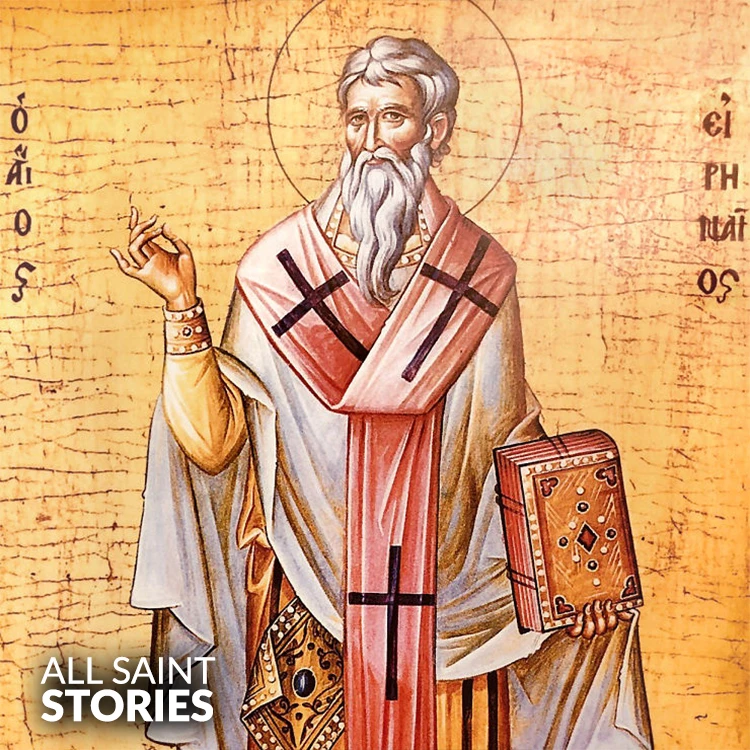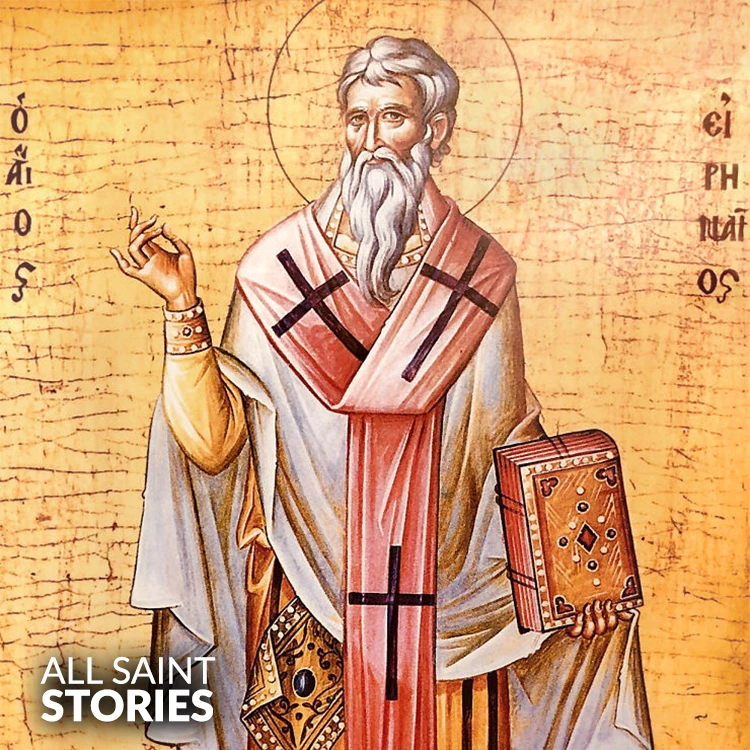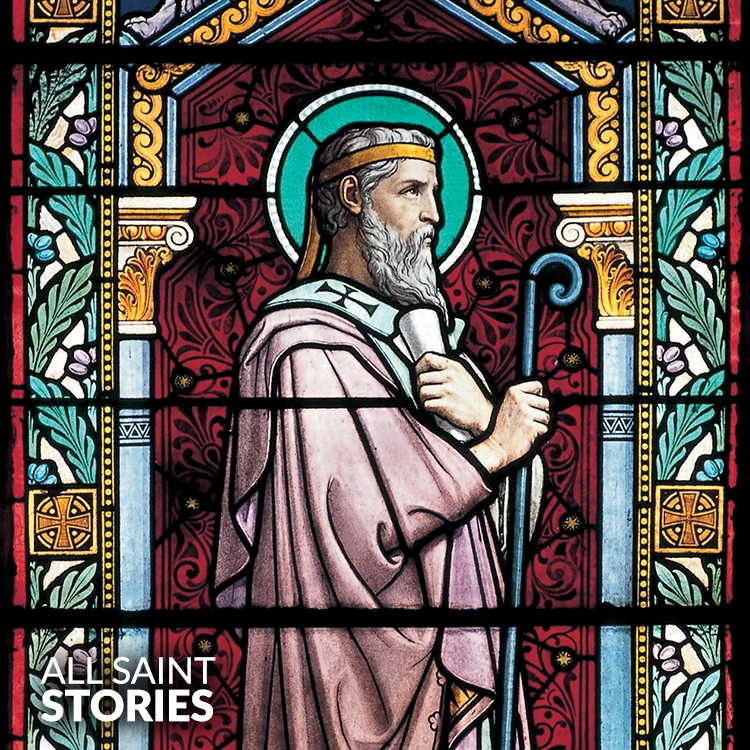“O God, who gave to your servant, Saint Irenaeus, the wisdom to defend the faith with clarity and courage, grant us, through his intercession, to be steadfast in our faith and to live out the truths of your gospel with boldness. Amen.”
ST. IRENAEUS
ST. IRENAEUS

St. Irenaeus was a second-century bishop and one of the most important figures in early Christianity. Born in Asia Minor and later serving as the Bishop of Lyon in France, he is renowned for his theological writings, particularly his defense against Gnosticism. His most famous work, Against Heresies, countered heretical teachings and helped establish key Christian doctrines.
Saint Irenaeus was born around the year 130 in Asia Minor, possibly in Smyrna (modern-day Izmir, Turkey), into a Christian family. His early life remains somewhat obscure, but he was likely a disciple of St. Polycarp, the Bishop of Smyrna, who was a direct disciple of the Apostle John. His connection to such early Christian figures deeply influenced his theological development.
Irenaeus became the Bishop of Lyons (modern-day France) in the mid-2nd century, a time when the Christian community was expanding in the Roman Empire. In his role as bishop, he worked tirelessly to combat the growing threat of Gnosticism, a heretical movement that posited a dualistic view of the world and dismissed the material world as inherently evil. The Gnostics also denied the full humanity of Christ, something Irenaeus strongly refuted.
His most significant contribution to Christian thought is his work Adversus Haereses (Against Heresies), written around 180 AD. In this text, Irenaeus systematically refutes the Gnostic teachings, emphasizing the unity of the Old and New Testaments and the true nature of Jesus Christ as both fully God and fully human. This work played a foundational role in the development of orthodox Christian doctrine, especially the understanding of the Trinity and the Incarnation. Irenaeus also introduced the idea of the “Rule of Faith,” a principle that emphasized the importance of apostolic tradition and the teachings of the Church in interpreting Scripture.
Irenaeus was known for his pastoral care and was deeply committed to the unity of the Christian Church. He sought to preserve the apostolic faith against various heresies and argued for the importance of bishops as guardians of tradition. He was an early advocate for the idea that the Church’s authority should be centralized in the bishops, particularly the Bishop of Rome, a position that would later become central to the Catholic Church’s structure.
Despite the many challenges he faced, including persecution from the Roman authorities, Irenaeus continued to preach and write until his death. He died around 200–203 AD, likely as a martyr during the persecution of Christians under the Roman Emperor Septimius Severus. His burial took place in the city of Lyons, where his tomb became a place of veneration.
Irenaeus’s legacy as a theologian and defender of the faith is profound. He was one of the earliest Christian writers to attempt to systematize Christian doctrine, and his works had a lasting influence on later theologians, including St. Augustine and St. Thomas Aquinas. His teachings on the importance of Scripture and tradition, as well as his defense of the faith against heresies, continue to be central to Christian theology today.
Video Not Found
The information on this website is compiled from various trusted sources. While we aim for accuracy, some details may be incomplete or contain discrepancies.
If you notice any errors or have additional information about this saint, please use the form on the left to share your suggestions. Your input helps us improve and maintain reliable content for everyone.
All submissions are reviewed carefully, and your personal details will remain confidential. Thank you for contributing to the accuracy and value of this resource.
Credits & Acknowledgments
- Anudina Visudhar (Malayalam) – Life of Saints for Everyday
by Msgr. Thomas Moothedan, M.A., D.D. - Saint Companions for Each Day
by A. J. M. Mausolfe & J. K. Mausolfe - US Catholic (Faith in Real Life) – Informational articles
- Wikipedia – General reference content and images
- Anastpaul.com – Saint images and reflections
- Pravachaka Sabdam (Malayalam) – Saint-related content and insights
We sincerely thank these authors and platforms for their valuable contributions. If we have unintentionally missed any attribution, please notify us, and we will make the correction promptly.
If you have any suggestion about ST. IRENAEUS
Your suggestion will help improve the information about this saint. Your details will not be disclosed anywhere.
© 2026 Copyright @ www.allsaintstories.com




 English
English
 Italian
Italian
 French
French
 Spanish
Spanish
 Malayalam
Malayalam
 Russian
Russian
 Korean
Korean
 Sinhala
Sinhala
 Japanese
Japanese
 Arabic
Arabic
 Portuguese
Portuguese
 Bantu
Bantu
 Greek
Greek
 German
German
 Dutch
Dutch
 Filipino
Filipino